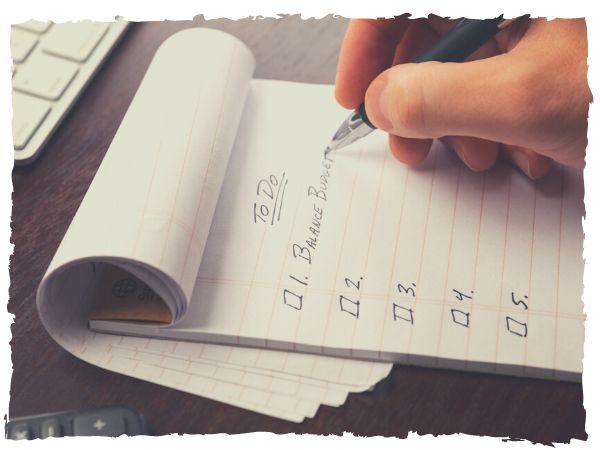Highly organized people are the envy of many, and for valid reasons. They get a lot done in what appears to be a seamless fashion, compared to those who are considered unorganized. Their ability to optimize their time and space easily sets them up for success.
Today’s post isn’t a comparison between people with these two types of personalities, only an illustration of 19 habits you’re bound to notice in an organized person.
There are numerous steps you can take to bring an end to habits like lateness in your quest to become much more productive at work, in business, and in your everyday life. You’ll see how easy it is to develop the right habits once you put your mind to the task.
What Is an Organized Person?
An organized person or someone with an organized personality is one who can carefully plan and get things done in an orderly and efficient manner. Other traits or habits include being neat and tidy, detailed, and punctual, according to Indeed.com.
Organized personalities are typically more reliable and effective at their job than those that aren’t, making them highly valuable to employers. Some people naturally have the personality while others have to work on cultivating the skills. However developed, being organized positively impacts both your professional and personal life.
Why Having an Organized Personality Is Important
The characteristics and habits of doing things in a structured and predictable manner impact how successfully your day turns out. More specifically, you’re able to break your day up into segments to stay as focused and productive as you can. You’re also likely to enjoy these other benefits in the grand scheme of things:
19 Habits Highly Organized People Have in Common
These are just some of the main practices organized people swear by. Emulate them and you’ll be well on your way to enjoying the benefits.
#1. They create systems to structure their lives
Think of life as a big structure with smaller parts that work together to keep things moving along. For example, work, family, and social life are different parts you have to manage. You’ll need to set up systems for staying on track with career obligations, caring for your children, and maintaining your personal relationships.
Those systems should feature set routines and allotted time to ensure everything runs smoothly, whether you’re at work or home and even while you’re asleep. When your life is strategically planned out, something unforeseeable has to happen to disrupt the flow. As a highly organized person, you would likely have prepared for different kinds of eventualities. That’s just how organized people think.
#2. They list tasks
If you know someone who makes to-do lists and writes down important things to remember, they’re likely an organized individual. That’s precisely how they keep track of everything that’s happening around them.
Practice writing down and storing information such as daily tasks, appointments, important dates, ideas, and goals. Next is to prioritize tasks.

I usually list date-sensitive tasks by order of dates. This strategy allows me to complete urgent/priority tasks first. You can set up ping notifications if you’re using an organizer app such as Google Calendar, which works well with Cozi Family Organizer App. Remember to review and update the lists to reflect completed tasks vs those still in the queue.
#3. They capture every idea
I’m sure you’ve had brilliant ideas pop into your head only to forget moments after. I’ve lost count of how many times I’ve experienced this as a writer before I began using a bullet journal to document my thoughts. Ideas are extremely elusive because there are so many things your brain has to process, whether you’re actively thinking or not.
Luckily, a multitude of tools is available for you to capture those thoughts and ideas in the moment of time. Notes apps, such as Evernote, Brightidea, MindMeister, Google Keep, and Todoist are some tools utilized by highly organized personalities. Make use of the apps to later organize and develop your genius ideas, strategize for an upcoming project, or set and accomplish new goals.
#4. They set goals
Setting and achieving goals is another notable habit seen in well-organized people. They capitalize on their abilities to do things in an orderly and systematic fashion without losing focus on achieving what they set out to. These individuals tend to use vision boards to set and track long and short-term goals.
Since they have a good appreciation for time, they typically don’t waste it trying to achieve goals that are impractical or don’t fit into the SMART goals approach. Goals that are Specific, Measurable, Attainable, Relevant, and Time-bound (SMART) are more achievable. You’ll get more satisfaction rather than frustration as you work on manifesting those goals.
#5. They manage time
Time management is a skill you first have to hone in your bid to become organized. I’m not gonna lie, I struggled with maximizing every hour of the day until I came across Pomodoro Technique. The time-blocking system helped me and can also help you develop invaluable time-management habits.
Whether it’s family obligations, to-do lists, or work projects that you need to stay in control of, the technique enables you to tackle tasks more efficiently. Tasks are broken down into timed segments to motivate you to complete them within a specified time.
#6. They block out distractions
Unless you’re working in a vacuum, there’s going to be some form of distraction. Sounds in and around your physical environment will compete for your attention. Like highly organized individuals, you have to have the ability to stay focused on tasks regardless.
You’ll also need to develop the discipline of not aimlessly frequently checking your phone or social media throughout the day. Sometimes it's your own mind that gets in the way by making you worry about unpaid bills or things you have no control over.
#7. They act on things right away
Another secret weapon of an organized person is not putting things off for later that can be done right now. It could be a work project or a DIY project at home. There’s the awareness that life is constantly in motion and postponed tasks can get in the way of important matters later on. Lost time is lost time. An appreciation of that fact should motivate you to tackle to-do lists head-on instead of procrastinating.
#8. They come prepared
“By failing to prepare, you are preparing to fail“ is one of the motivational statements highly organized people live by. They prepare for just about everything, knowing that is what’s necessary to achieve a goal or the task at hand. The prep work starts ahead of time, during which they’ll anticipate potential snags and plan for those eventualities.

Preparedness is actually a core part of time-management skills. There’s only so much time to do a certain task. As such, showing up unsure of what needs to get done will slow down or stall productivity.
#9. They use productivity tools
Becoming an organized person is not that difficult when you think of all the organizer tools readily available to assist you in your quest. In fact, those tools take performance and efficiency to the next level. Frequently used productivity tools include to-do lists, note-taking apps, planners, spreadsheets, and project management software.
The apps and software are designed to keep you on task and on track with your schedule. There are apps like Trello for you to organize all your tasks and projects in one place, shift them around, and check off those that are completed. That way, you'll minimize redundancies and confusion and be able to quickly and efficiently finish assignments.
#10. They have routines
Organized people are easy to predict. It’s a valuable trait that comes with having set daily routines and hours for work and leisure. Routine behavior patterns make them highly reliable, not only at work but also in relationships. They have the habit of doing the same things from the time they wake up to the time they go to bed.
For example, organized people wake up, get dressed, and arrive at work practically the same every day. They’ll have their cup of Joe before jumping right into the day’s work, checking and responding to emails and attending to assignments. Something outside of their control has to occur to obstruct progress.
Routines add a sense of purpose to your day and keep you constructively occupied. You’ll complete tasks faster and have time to spare by moving through your daily schedule following an established system. Here’s How to Create a Morning Routine.
#11. They have a place for everything
Have you seen the office space of a well-organized person? It’s clean and free of clutter. They make use of desk drawers, shelves, and storage boxes to keep office items in their respective places. Items are usually properly labeled and arranged in sequence. Ask them for a certain item, and they’ll tell you exactly where to find it. They might even give you the coordinates, e.g., Bottom left drawer, inside a green folder, marked ‘confidential.' Amazing!
The idea is to locate items quickly without frustration. I’ll bet my bottom dollar their home is just as organized. You’re welcome to use cabinets, chests or drawers, and closet organizers at home as well. You’ll know you’ve developed this habit once you can find your belongings with your eyes closed.
#12. They eliminate clutter on a regular basis
Do you know you could lose important documents or other items in a cluttered home or office? I once visited a lawyer’s office and was taken aback by the piles of legal files strewn across the desk and floor. He assured me that there was a “method to the madness.”
Once you become an organized person, you’ll notice how difficult it is to focus and function at optimum in a cluttered environment. To get to that point, you’ll need to frequently store away folders, papers, and office tools that aren’t actively in use.
Keep only the things you need for current tasks. Use the same approach at home to get rid of personal effects that no longer serve a purpose. Decluttering opens up physical and emotional space. You’ll feel relieved and be able to navigate with more ease.
#13. They are punctual
Organized people can’t fathom the idea of arriving late for work, meetings, or dates. It can affect their momentum and leave them feeling out of sorts. If you’re wondering why it’s because punctuality is on their Personal Core Values List.
They shun tardiness across the board, so it’s unusual for them to submit projects after the deadline. They’ll prioritize tasks and set up reminder alerts to keep them on track and ahead of the game. Time is money. You could lose an opportunity of a lifetime or a lucrative deal by showing up late.
#14. They have a can-do attitude
You’ll have to develop a positive outlook to get to the level of those who are sticklers for staying organized. These individuals hold a belief that they can accomplish any task given the right tools, environment, and support. They are aware of potential setbacks but don’t allow unknowns to deter them.
Doubts may surface as with any human being, but they don’t entertain negative self-talk. They remain steadfast in their can-do spirit and that’s what consistently gives them an edge over others.
#15. They multi-task only when necessary
An organized person will only surround themselves with the things needed for the time being. The strategy helps them to stay focused. While they’re good at multitasking and understand the value of it, they shy away from the strategy if it’s going to affect performance.

In fact, research shows that simultaneously juggling two or more tasks doesn’t always result in efficiency. We are likely to be less efficient when taking on multiple complex tasks or those requiring active attention.
For example, listening to a class lecture while cleaning the house. Distractions will occur and force you to re-listen to the lecture for parts you missed. Ultimately, you’ll lose time redoing tasks that could’ve been saved by doing one at a time.
#16. They sometimes complete their least favorite task first
Some tasks just aren’t pleasant but they need to get done or your boss will be breathing down your neck. As tempting as it may be to ditch them until later, avoiding them isn’t something highly organized people usually do.
They’re aware that the approach leads to procrastination and can result in unfinished assignments or chores at the end of the day. They'd rather square away their least favorite work first and spend the rest of their time feeling motivated to do the ones they enjoy. Consider it a good example of delayed gratification.
#17. They delegate tasks
Self-reliance is one of the positive traits that tend to go along with being organized. That doesn’t mean you have to do everything by yourself. Maintaining structure sometimes requires enlisting the help of others.
Practice the habit of assigning chores to family members or asking your co-worker to chip in to complete a team project. Delegation is an example of an ability to manage time by fast-tracking productivity.
#18. They hold themselves accountable
Accountability toward themselves is one habit that truly sets those that are organized apart from those that aren’t. Unorganized folks can go about their day and not notice or care that they haven’t fulfilled their daily obligations. In their minds, unfinished business can be done tomorrow.
Develop the habit of going over your daily or weekly plans as an organized person would. If tasks remain incomplete, ask yourself why. Next, determine ways to prevent this from happening and interfering with your performance and achievement of your goals.
#19. They stop to relax
Keeping employment, business, and life matters under control requires a lot of effort, even though organized individuals make it seem effortless. At the end of the day, they’re humans and understand the need to regularly disconnect, physically and emotionally.
Taking time to relax and recharge enables you to return to work and family responsibilities feeling motivated. You could even include exercise or meditation as part of your stress management routines.
Final Thoughts on Habits of an Organized Person
Organizing habits take you beyond productivity and efficiency. You’re able to move through your day with less stress and greater certainty once you have structure and systems in place that are working in tandem. Tasks get done on or ahead of schedule, leaving you with extra time to enjoy your favorite activities and spend quality time with the people you love.
It’s not even that difficult to become at one with new habits, as explained in How to Build New Habits That Stick: The Ultimate Guide. Simply practice them on a daily basis and watch how your life transforms!
More Habits to Improve Your Life:
- How to Develop Multiple Habits at Once
- 16 Best To-Do List Apps to Get Things Done in 2025
- 4 Necessary Weight Loss Habits For Anyone Who Wants to Lose Weight



Theresa,
I am really glad this list empowers you! 🙂
I am sure lots of others feel the same. I know I do. I feel I am a very organized person, but every now and then I feel I miss the boat on one or two of these from time to time. We are all human and no one is perfect, all we can do is try to strive to improve. Do that and you are far better than 99% of everyone else, I feel.
Keep up the good stuff you do and keep improving!
Thanks for an awesome comment.
-Steve
hmmm… how does this worrk in terms of their impact on interpersonal relationships ?The reason i ask is that many of these habits require cooperation and commitment from others in our lives -be they intimate partners or simply work colleagues . In my experience individual attempts at being organised can often infuriate others ‘have you been tidying up again?’ ‘stop being so anal’ ‘get a life’ etc ‘you are too rigid insisting on places and systems for everything…learn to live with uncertainty…life’s not black and white like that etc the comments are endless.
Rather than being seen as efficient and organised , i feel that often others see people who strive for these habits as dysfunctional … i’ve evenheard people being described as ‘ on the autistic spectrum’ jus t because of their well developed habits!
would be great to see a blog about how to incorporate these habits while at the same time maintaining good interpersonal , flexible relationships?
Liz,
You are very correct. It is easy to say follow these steps, but it can be a lot harder while the people around you are undercutting you at every turn.
The real world can certainly intrude on the “right” things to do.
Somewhat, the solution to this is to surround yourself with people that are also organized. The whole being influenced by the 5 people you spend the most time with thing. But if it is a close loved one (husband, wife, child, close family). You cannot just “avoid” their negativity.
I will try to think up a more detailed post on some of the ways I deal (and others) with the negativity of others. You are right, how to deal with this could make a great post all in itself.
-Steve
Do I see a tiny lurch into self-help mainstream on DGH? You know, mindset and all that stuff…
I also used to approach my growth and habits in businesslike manner, but the more I’m in, the more I see that everything starts in my head.
A really cool list SJ. It made me feel better about myself, I have at least 50% of those habits.
Am I successful and organized then? 😛
Awesome.. will follow this
Hey, I am so bad at habit number 2 that it’s almost embarrassing. I spend money like it’s the apocalypse. I need to start writing down my expenditure, and this is another reminder, so thank you!
This list is amazing, just shared it with some folks over social media! #11 and 16 are especially huge, I think.
The only point I’d fight you on is #6 🙂 I personally find that multitasking as little as possible works best for me, and most of the studies I’ve read show that multitasking makes you less focused and productive. I do like your style of grouping tasks together that you talked about in the point though 🙂
Ya, multitasking will make us less focused but I think S.J. is urging us to do tasks group that can be done along the way rather than forming a task group for one particular time.
Chris,
Great point on #6. I should have been a lot clearer. I agree absolutely with what you say about multi-tasking, there are two exceptions IMO. Ones like the example I used, where you are already someplace, and just try to make sure you do not duplicate effort. (perhaps not even “really” multi-tasking). And multitasking that includes things that are truly rote and take no concious thought at all, only motor skills. Like listening to podcasts while walking. You need concentration for the podcasts, but unless you are in danger of walking into traffic, your body can handle the work of walking.
“I write every idea or thought that comes to mind so I can keep my mind clear.”
Another reason this one is a great habit is it enable you to capture inspiration when it comes. Inspiration rarely comes at times we need it.
Great list Scott! I tend to be OC (obsessive-compulsive) about being organized that I end up not being organized. Yes, you hear that right. I wrote in the past about how obsession can lead to procrastination- and this is because the more you want that spick and span organization the more you want to delay it because you are not ready to be organized. Crazy isn’t it? I learned that one solution is to simplify it (at least for OCs like me).
One thing I make sure when I take down notes is- to write down the highlights rather than note obsessively every little detail.
And oh, #16 sounds simple yet difficult to do! I work hard but doing a day job and building a business on the side- is tricky. I will not explain further but thanks for the reminder 😉
Great one there steve. This is enlightening, I am prepared to cultivate these habits and organize myself to succeed.
Thanks for these tips, Steve!
I really love habit #19! I often pair tasks that I have to do but that I resent doing with something that I really look forward to. For instance, I have my morning coffee as I answer support tickets during the first part of my day (coffee = love, support tickets = anxiety) and my afternoon tea with answering support tickets in the later part of the day.
Also, I made a BE Attitude card a few weeks ago that reminds me of habit #21. “I keep my mind centered upon only those things that I want to see manifest in my life”. Such a good mantra to make sure you don’t give too much stock to negativity or your own self doubt.
Like always, I take to heart what you write on here. What really got me thinking was habit #1 because recently, a thought I’ve had was that too many ideas pop into my head. I tend to want to do one thing and then another, without really giving myself a reason to why I wanted it. I could have a dozen ideas of success in only a minute, but until I write it down and clarify my conscious on what I desire, I’ll continue playing, “pick a random number from a hat” type of ordeal.
Habit #21 is another thing I’ve been trying to teach a few people who come across me. They find it easy to complain and accept that life is meant to be bitter. But that’s only because they allow their internal thoughts to cloud their minds. Whether it’s because they failed to reach an expectation in their mind or a social impact that affects them, they find it much easier to blame life than motivate themselves and thrive after their dreams.
Agreed.
on #1: Until you write things down and begin to take action, the things you desire will always just be dreams.
on #21: It is funny how people will let negativity drag them down. I am by no means a “law of attraction” guy. That is: if you want things badly enough, you will get them. You have to work for what you desire in life. But I totally think of something I call the “law of repulsion”. If you do anything with a negative attitude, and think you will not be successful -well, your wish will come true and you will fail.
I was preparing for a job interview and this helped me A LOT.
Thank you!!